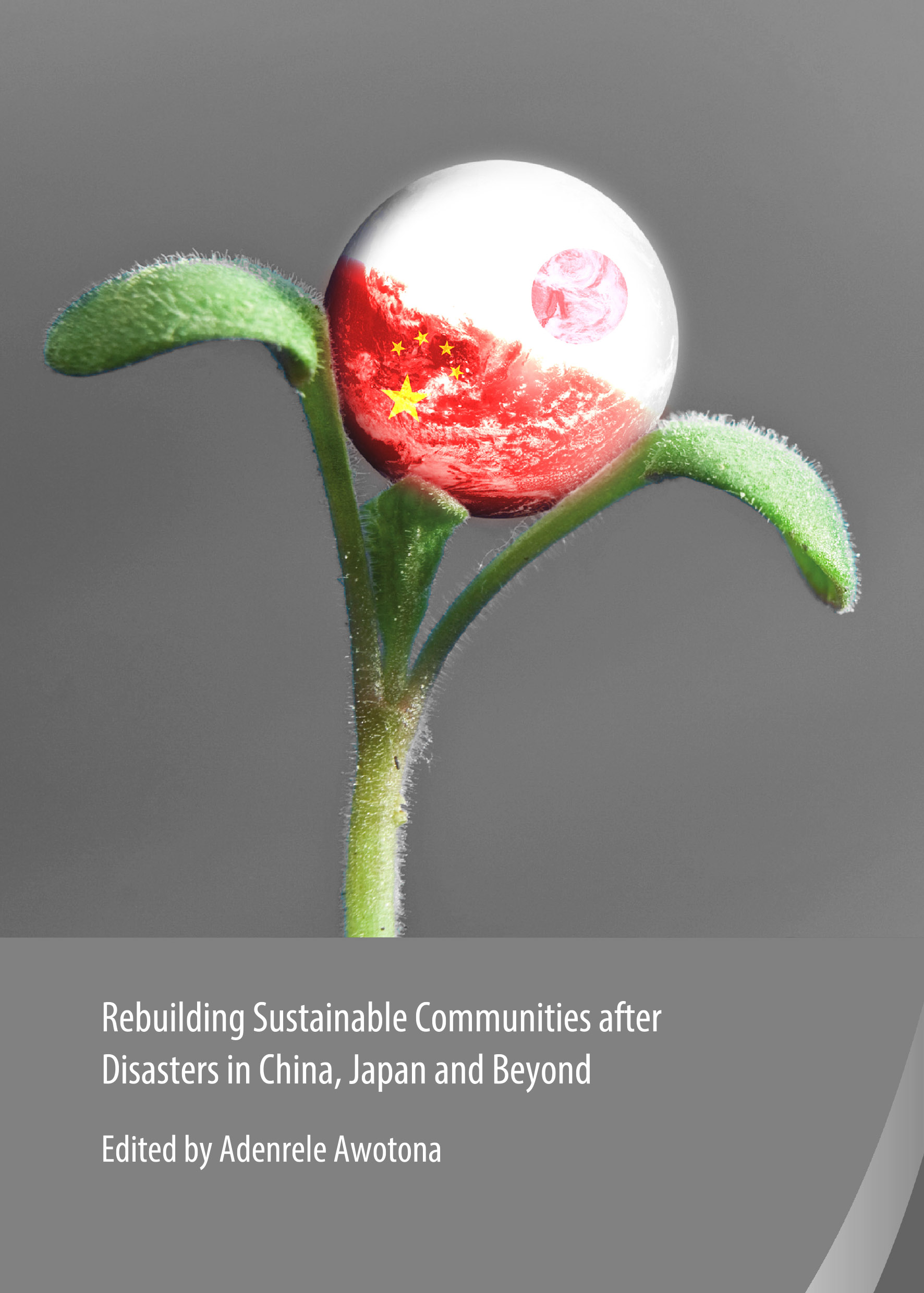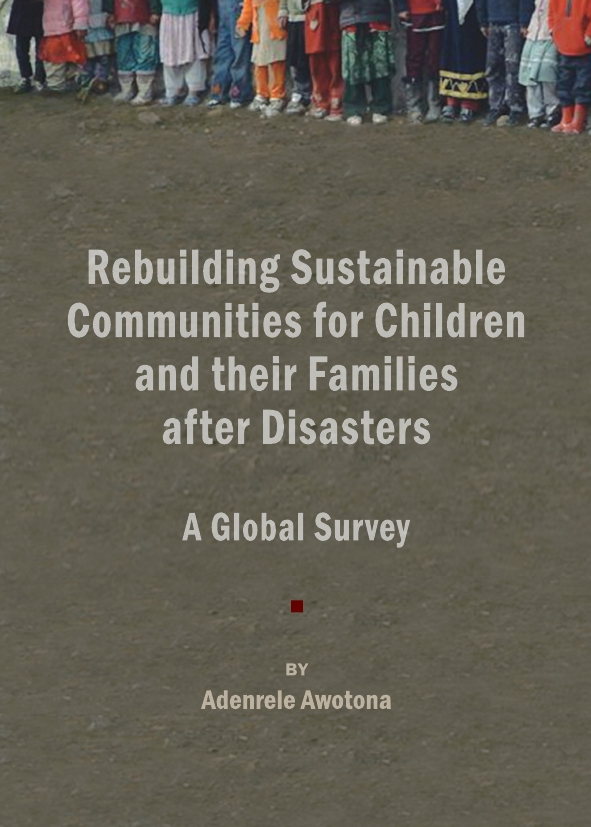Rebuilding Sustainable Communities after Disasters
Established in 2008, the Center for Rebuilding Sustainable Communities after Disasters (CRSCAD) at the University of Massachusetts Boston, USA, is a multidisciplinary research unit dedicated to raising awareness and possessing the expertise necessary for long-term sustainable reconstruction after disasters with a focus on vulnerable populations. Beyond earthquakes and severe weather-related events, the center offers professional trainings and practical knowledge for other disasters framed by bad governance and poverty, environmental pollution, HIV/AIDS, wars and conflicts, large-scale attacks on civilian populations, technological catastrophes, and influenza pandemics.
As part of its mission to develop practical, sustainable and long-term solutions to the social, economic, and environmental consequences of disasters, the center regularly organizes and hosts international conferences and workshops that bring together representatives from government, humanitarian and disaster relief organizations, the nonprofit and non-governmental sectors, researchers, and first responders as well as students of global post disaster studies to exchange ideas, best practices, and lessons learned to build a worldwide community that is better informed and enabled to prepare for, respond to, and finally rebuild sustainable communities after disasters.
A key focus of these workshops and conferences is always on the full participation of vulnerable populations —women, children, people with disabilities, the elderly, the poor —in planning for disaster response and mitigation as well as post–disaster rebuilding. Past conferences and workshops have focused on China, Haiti, Iraq, and Japan resulting in the following publications:
Rebuilding Sustainable Communities with Vulnerable Populations after the Cameras Have Gone: A Worldwide Study, Cambridge Scholars Publishing, U.K.: Newcastle upon Tyne, 2012
Rebuilding Sustainable Communities for Children and their Families after Disasters: A Global Survey, Cambridge Scholars Publishing, U.K.: Newcastle upon Tyne, 2010,
Rebuilding sustainable communities in Iraq: Policies, Programs and International Perspectives, Cambridge Scholars Publishing, U.K.: Newcastle upon Tyne, 2008
Through this book series, a wide range of readers learn about the complex and multidimensional nature of local and global disasters and how to respond appropriately to their social, political, environmental and economic significances for local communities.
The published volumes would appeal to educators, scholars, researchers, officials of governments and Non-Governmental Organizations, humanitarian and multilateral agencies, scientists of all stripes (social, physical, biological, environmental, amongst others), architects, engineers, planners (regional/city/urban/community/neighborhood/economic/social) and allied professionals, public policy makers, for-profit and not-for-profit entities, grassroots community-based organizations, managers and all those who are potential victims of disasters and who have to create awareness, understanding and actions in emergency planning and response.
Adenrele Awotona is Professor and Director of the Center for Rebuilding Sustainable Communities after Disasters at the University of Massachusetts, Boston, USA. He is a former Dean of the College of Public and Community Service at the University of Massachusetts, Boston. He was a Director of Studies for the British Council International Seminars (Reconstruction after disasters) in the United Kingdom.
He earned his doctorate degree from the University of Cambridge, United Kingdom. He also earned a certificate from Harvard University’s Institute of Management and Leadership in Education; and, two certificates from Cornell University, one in managing performance in higher education and another from the Administrative Management Institute.
Professor Awotona’s research interests comprise global post-disaster reconstruction; social and cultural dimensions of disasters; disaster diplomacy; sustainable community-based planning; international development planning; housing policy, architectural design and cultural values; and, people-environment relations. He has published extensively in these areas. Similarly, through research, consultancy and teaching, he has professional experience in many countries of Europe, Africa, Asia, the Middle East, South America, and the Caribbean.
"The Rebuilding Sustainable Communities series edited by Adenrele Awotona is a tour-de-force that takes up the issues of how to re-build not just physical structures, but also the human networks that are often torn apart after disasters. Furthermore, the series aims to tackle long-term issues that occur long after the emergency phase of a disaster ends, including such topics as how to prepare communities to be more resilient in the face of future events. The texts tackle these issues from both a macro- and micro-perspective. On the macro-level, the books investigate the role of leadership, language, and storytelling on recovery from events that cause ontological disorientation. On a more granular level, essays in the volumes provide specific analysis of cases such as the March 11 disaster in Japan and the role that US philanthropy provided to the ways in which rebuilding higher education in Iraq can help improve that nation. Even more specific chapters examine ways to prevent falls among the elderly and the necessity of resilience training for first responders. These prescriptive chapters are likely to be of assistance to planners hoping to prepare their communities for disasters. Written by diverse scholars and practitioners, these texts are highly relevant to today’s world."
David P. Janes
Director of Foundation Grants and Assistant to the President, United States-Japan Foundation
"It is heartbreaking to contemplate how many communities around the world have been impacted by person-made and natural disasters. This is especially true when we look at what we actually know about the short- and long-term effects such breakdowns can have on the societies themselves, and on the people, especially the children, living in them. Fortunately, as a result of the far-reaching efforts of many deeply committed and wise professionals, who have devoted time and effort to work in and study areas affected by conflict, we are learning a great deal about how to help traumatized children, families and the wider communities heal. And nowhere can students, professionals and others interested in learning about this issue find more expert and far-reaching documentation and instruction of current knowledge about promoting healing in communities after disasters than in the Rebuilding Sustainable Communities after Disasters Series edited by Adenrele Awotona. Thank you, Professor Awotona, for this far-reaching and comprehensive contribution to promoting the wellbeing of all those communities affected by disaster around the world."
Diane E. Levin, PhD
Professor of Education, Wheelock College, Boston, MA; Author of Teaching Young Children in Violent Times; Co-Author of From Conflict to Peace Building
"Rebuilding Sustainable Communities after Disasters is an extremely important series that provides roadmaps to communities in pursuit of more sustainable futures—be they afflicted by natural or man-made disasters or simply charting a new development course. The range of the cases covered in the series both in space and time, and the diverse levels of communities’ development vastly broaden its appeal. It appeals even to those of us who are trained to design new buildings or plan new cities because this requires more sensitivity and imagination to do ‘more with less’ for the traumatized clients. Thus beyond the creative community of designers and planners—inside and outside organisations—the series should be of interest to policy makers, scholars, donor agencies and community leaders at various levels."
Professor Umar Benna
NUC Distinguished Professor; SPURS Fellow, Massachusetts Institute of Technology (MIT)
"Dr Adenrele Awotona presents a compendium of scholarly work blending humanity, arts and science. The series is a poignant portrayal depicting the most vulnerable at-risk societies coping against horrific odds during disaster with the goal of rebuilding sustainable communities. The work presents a comprehensive understanding of emergency management, disaster resilience and risk reduction from a global viewpoint. The combined practical experience and research captures the continually changing disaster threat. […] Conventional wisdom is challenged as theory and practice are intertwined, broadening the possibilities toward the systemic improvement of the cycles of disaster and rebuilding resilient sustainable communities. Each paper presents a case study encouraging the reader to conduct future research. Combined, the papers are powerfully provocative and passionate in their presentation of the issues with which they are concerned. The compendium provides a cornerstone foundation from which to build an in-depth analysis for a much greater understanding globally of the immense complexity of disasters and their impacts on all of humanity. The common thread that integrates all four volumes highlights how extremely fragile and interconnected our environment is globally, proving that disasters know no geographic boundaries, only that of one delicate planet. This series is a must-read for anyone desiring an intellectual appreciation of these complexities, and wanting to contribute to improving conditions for humanity and rebuilding sustainable communities after disaster strikes."
Elaine M. Sudanowicz
Emergency Manager
"All the contributions in this series have the potential to enhance our knowledge in the mechanisms of handling disasters, and our future preparedness. The four books, taken together, will also enhance international ability to deal with future disasters so that communities can be rebuilt with as little pain as possible to the most vulnerable members of the communities. The four books are highly recommended to bureaucrats and policy makers around the globe, especially civil servants working with international organizations, like the United Nations, in anticipation of future disasters. As an academician myself, I would strongly recommend the books to my colleagues in the social and economic sciences departments and other related academic disciplines."
Pade Badru
Professor and former Chair, Department of Social and Behavioral Sciences, Savannah State University
"The four volumes show the breadth of Prof Awotona’s experience and expertise in being in the centre of the ongoing discourses on post-disaster community rebuilding and regeneration at global level. He has demonstrated his commitment to engaging with this disciplinary area through his involvement in and running of the conferences and symposia, which have framed many of the thematic areas and content of the series. Japan, China, and Iraq are areas of significant coverage and focus in the publications. Professor Awotona shows his involvement in all volumes with his editorial overview and outlining of the key issues and themes of each book. For researchers and academics with an interest in all aspects of post-disaster reconstruction, these volumes come as recommended reading on contemporary issues and case studies in the field."
Dr Ola Uduku
Reader in Architecture, University of Edinburgh














